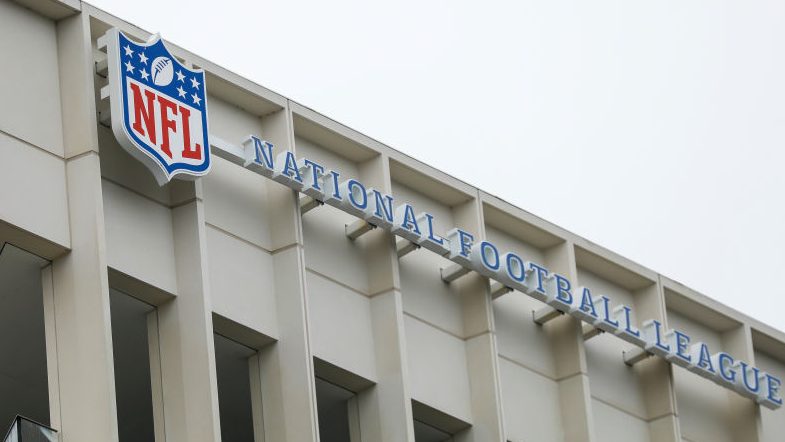
Over the past year or so, multiple players and one assistant coach have been suspended by the NFL for violating the league’s gambling policy. In each case, it’s likely that the NFL received the information from a sports book partner that basically informed on the player or coach for using his own device with his own account in his own name.
Obviously, the NFL should take action when such evidence falls into its lap. But the periodic suspensions can provide convenient cover for otherwise not doing much to affirmatively detect and rectify other violations of the gambling policy.
That’s a point we raised earlier this year, after Jets receivers coach Miles Austin was suspended for betting on non-NFL games and as the potential conclusion of receiver Calvin Ridley‘s suspension was approaching. It’s worth mentioning again, after reviewing the league’s full gambling policy, a copy of which was distributed by the NFL Players Association on Friday to all agents.
The gambling policy applies to all “NFL Personnel,” which includes by definition “all full-time and part-time personnel including League office employees, club employees, players, owners, coaches, athletic trainers, game officials, security personnel, game-day stadium personnel and other staff, consultants, and temporary contract workers.” That’s very broad. It also includes NFL Network and NFL Media employees, we’re told.
As one NFL employee explained it to PFT, all league personnel receive warnings and admonitions about the gambling policy. They also are required to perform online training through the Human Resources department.
So what is the league doing to ensure that league employees aren’t violating the gambling rules?
Those rules are very broad. The policy applies generally to all forms of gambling, “by any system or method, on any real-world professional or amateur sporting (or related) event or any portions or aspects of the event, including the score, statistics or outcomes of any such events, or the performance of any individual participant(s).” As defined by the league’s policy, sports betting “includes, without limitation, straight bets, teasers, parlays, totals (or ‘over-unders’), moneylines, betting pools (e.g., ‘survivor’ or ‘square’ pools), in-game wagering (whether on final or interim game scores, statistics, discrete in-game events or otherwise), exchange wagering, and proposition bets.”
The league’s gambling policy also places strict limits on fantasy football participation by “NFL Personnel,” who may not (per the gambling policy): “(a) accept prizes with a value in excess of Two Hundred Fifty Dollars ($250) in any season-long fantasy football game; (b) participate in any ‘daily’ or other similar short duration fantasy football game that offers a prize; or (c) participate in any fantasy football game (including daily, season-long, or other format) if participation is prohibited by applicable law or regulation.”
That’s the limit. Two hundred and fifty dollars. As one source has repeatedly explained it to PFT, that policy is being routinely violated by certain league personnel.
Having sports book partners deliver gift-wrapped evidence of players betting on NFL games and/or betting on non-NFL games at NFL facilities helps create the appearance that the league is enforcing the policy. But is the NFL truly exercising vigilance when it comes to rooting out other violations?
That’s the real question. What is the league doing to proactively investigate whether non-player personnel — particularly employed by the NFL itself — are violating the gambling policy? It’s not enough to wait for ironclad cases against those who commit clear violations, either because they weren’t properly warned or they failed to pay proper attention. At some point, the league needs to spend the money necessary to explore whether people who know not to place bets on their phones in their own names are otherwise engaged in conduct that violates the gambling policy.
It would be a shame if the league simply relies on the ability to periodically whack a player or two (or five) in order to justify not fully and completely exploring the rabbit hole. It’s entirely possible that’s exactly what’s happening.
What is NFL doing to affirmatively investigate gambling policy violations? originally appeared on Pro Football Talk